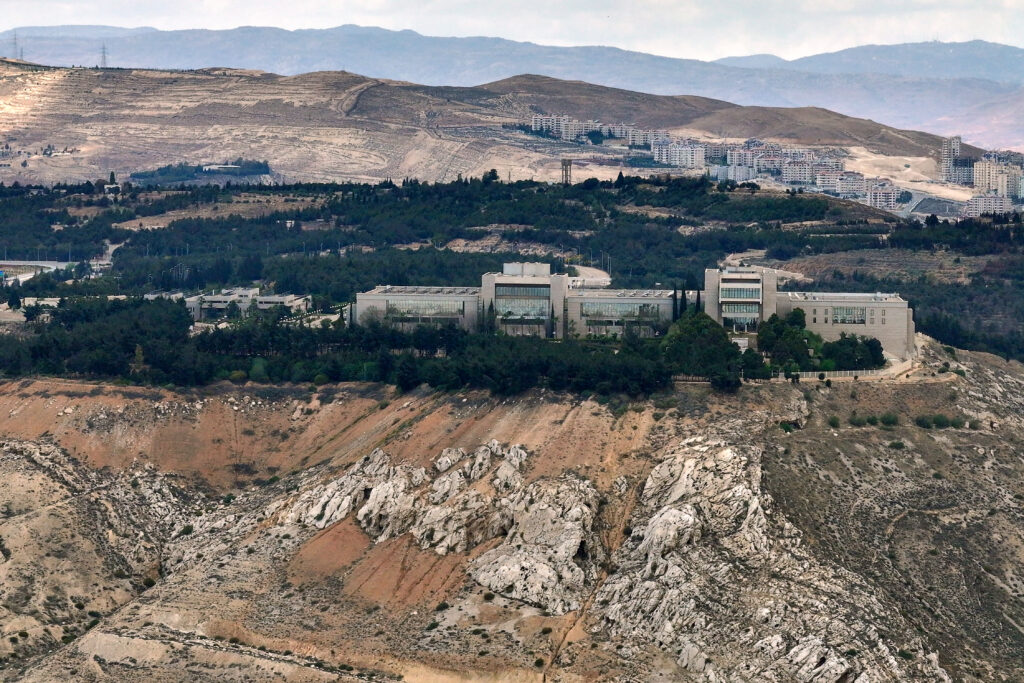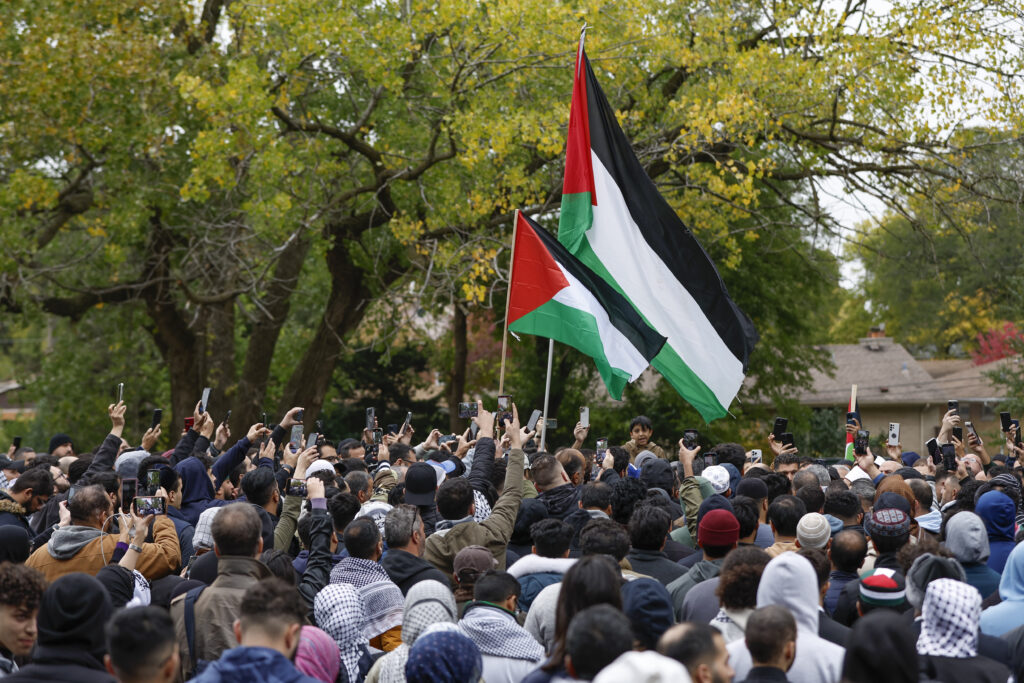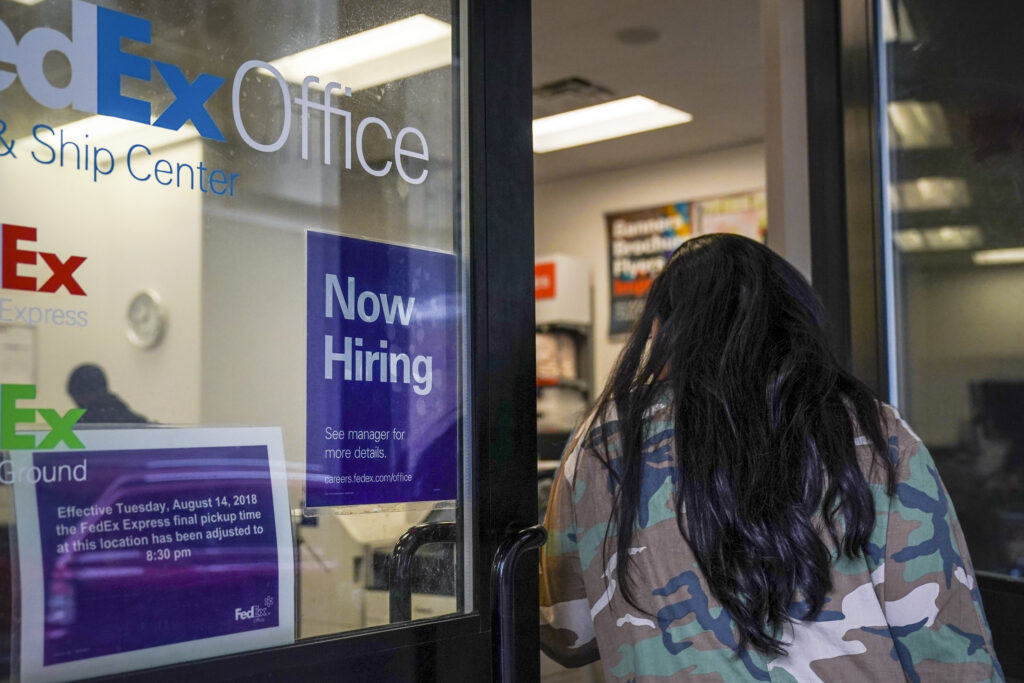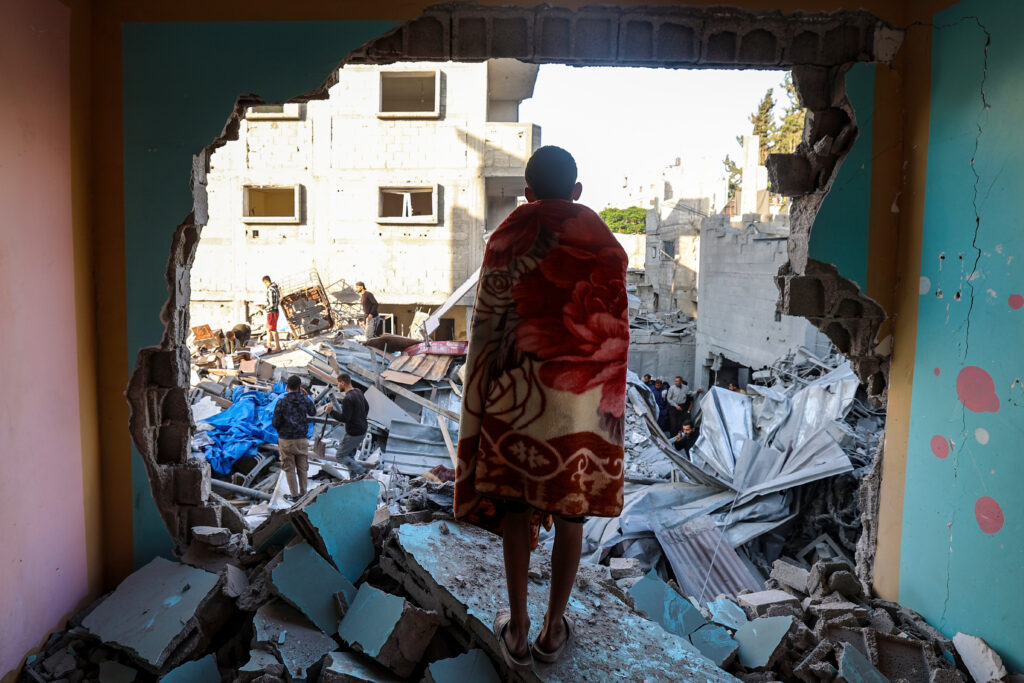AFP Asia Business
Israel launches new Syria strikes amid Druze tensions
Israel launched more than 20 air strikes inside Syria late Friday, a war monitor said, following up an attack near the presidential palace in Damascus which was condemned as a “dangerous escalation” by the country’s Islamist rulers. The strikes came amid Israeli warnings to the Damascus government not to harm the Druze minority, following recent sectarian clashes.The Syrian Observatory for Human Rights said more than 20 new strikes hit military targets across Syria in the “heaviest” assault carried out by Israel on its neighbour this year. Syria’s state news agency SANA reported Israeli airstrikes near Damascus and in the west, at Latakia and Hama, as well as in Daraa in the south. It said one civilian was killed at Harasta near Damascus and four people were wounded near Hama.An Israeli military statement said its forces had “struck a military site, anti-aircraft cannons and surface-to-air missile infrastructure in Syria” but gave no further details.The Israeli strikes came after Druze clerics and armed factions reaffirmed their loyalty to Damascus, following clashes between Druze fighters and Syrian forces, including government-affiliated groups, in Jaramana and Sahnaya near Damascus and in Sweida province.The Observatory monitor said more than 100 people were killed in the fighting.Sweida is the heartland of the Druze religious group and an apparent drone strike killed four Druze fighters at a farm there Friday, the Observatory said. SANA said it was an Israeli attack.- Israel sends ‘message’ -An early morning blast in the presidential palace area of Damascus was heard across the city and sparked international concern.Israeli military spokesman Avichay Adraee said “warplanes attacked… the area near Ahmed Hussein al-Sharaa’s palace in Damascus”, referring to the interim president.In a joint statement, Israeli Prime Minister Benjamin Netanyahu and Defence Minister Israel Katz called it a “clear message” to Syria’s rulers who ousted president Bashar al-Assad in December.”We will not allow forces to be sent south of Damascus or any threat to the Druze community,” they said.Syria’s presidency called the strike “a dangerous escalation against state institutions”, and accused Israel of destabilising the country.UN Secretary-General Antonio Guterres condemned the Israeli strike as a violation of Syria’s sovereignty, his spokesman said.The UN-mandated Independent International Commission of Inquiry on Syria expressed concern at the “deadly clashes with sectarian dimensions”, and said Israeli airstrikes increased the risk to civilians.After this week’s clashes a de-escalation deal was agreed between Druze representatives and the government, prompting troop deployments in Sahnaya and tighter security around Jaramana.Syrian officials said the agreement also included the immediate surrender of heavy weapons.An AFP photographer saw troops taking over checkpoints from Druze gunmen in Jaramana, although no handover of weapons was witnessed.- ‘Outlaw groups’ -Qatar, a backer of Syria’s new rulers, and Saudi Arabia condemned Israel’s “aggression”. A German foreign ministry statement said: “Syria must not become the venue for regional tensions to be played out.”Israel has attacked hundreds of military sites since Islamist-led forces deposed Assad.It has also sent troops into the demilitarised buffer zone that used to separate Israeli and Syrian forces on the Golan Heights.Israel launched strikes near Damascus on Wednesday and threatened more if violence against the Druze continued.The unrest was sparked by the circulation of an audio recording attributed to a Druze citizen and deemed blasphemous. AFP was unable to confirm its authenticity.Syria’s government said “outlaw groups” were behind the violence, but the Observatory and Druze residents said forces affiliated with the new authorities attacked Jaramana and Sahnaya and clashed with Druze gunmen.- ‘Genocidal campaign’ -In Sweida, religious authorities and military factions said after a meeting that they are “an inseparable part of the united Syrian homeland”, and rejected “division, separation or secession”.SANA said security forces were being sent to Sweida to “maintain security”.That move came after Sheikh Hikmat al-Hijri, a Druze spiritual leader, on Thursday condemned what he called a “genocidal campaign” against his people.Syria’s new authorities have roots in the Al-Qaeda jihadist network. They have vowed inclusive rule in the multi-confessional, multi-ethnic country, but must also contend with internal pressures from radical Islamists.On Friday, Sharaa met Lebanese Druze leader Walid Jumblatt, who has urged the minority community in Syria to reject “Israeli interference”.The latest violence follows massacres of Alawites in March, when the Observatory said the security forces and their allies killed more than 1,700 civilians.That was the worst bloodshed since the overthrow of Assad, who is from that minority community. The government accused Assad loyalists of sparking the violence.
Murderer of Palestinian-American boy sentenced to 53 years
An Illinois man was sentenced to 53 years in prison on Friday for the murder of a six-year-old Palestinian-American boy in an attack deemed an anti-Muslim hate crime linked to the Israel-Hamas war.Joseph Czuba, 73, was convicted in February of fatally stabbing WadeaAl-Fayoumi and attacking the boy’s mother, Hanan Shaheen.Czuba was the family’s landlord and the attack took place a week after the start of the Israel-Hamas war in October 2023.Wadea was stabbed 26 times and a serrated military knife with a 15-cm (six-inch) blade was removed from the child’s abdomen during the autopsy. Shaheen and Czuba’s now ex-wife, Mary, testified that he targeted the Muslim family after becoming agitated about the conflict in Gaza, media reported. Prosecutors said Shaheen called police in 2023 after Czuba forced his way into her bedroom and stabbed her repeatedly. She was able to lock herself in a bathroom to call for help, during which time Czuba attacked her child.”The cruelty of this morally reprehensible killer and the impact of his violent conduct on this innocent child and mother is truly unfathomable,” prosecutor James Glasgow said in a statement.Jurors deliberated for just over an hour before finding Czuba guilty of first-degree murder, attempted murder and two counts of a hate crime.Judge Amy Bertani-Tomczak sentenced Czuba to 30 years in prison for Wadea’s murder, 20 years for the attack on his mother and three years for the hate crimes, to be served consecutively, the Chicago Sun Times reported.During sentencing, the boy’s great-uncle Mahmoud Yousef asked Czuba why he did it but received no response, the newspaper said.”We want to know what made him do this,” Yousef told the judge.According to the Will County Sheriff’s Office, the victims were targeted “due to them being Muslim and the ongoing Middle Eastern conflict involving Hamas and the Israelis.”Joe Biden, then the US president, condemned the attack as a “horrific act of hate” that “has no place in America.”
Israel launches new Syria strikes amidst Druze tensions
Syria’s Islamist rulers on Friday denounced an air strike near the presidential palace as a “dangerous escalation”, as Israel reportedly launched its heaviest barrage this year on the country.Israel said the Damascus strike was a “clear message” to the government not to harm the Druze minority, following recent sectarian clashes.Hours later, Israel staged more than 20 strikes on military targets across Syria, according to the war monitor, the Syrian Observatory for Human Rights.The strikes came after Druze clerics and armed factions reaffirmed their loyalty to Damascus. They urged the new authorities to appoint local officials to government posts in Sweida province, heartland of the Druze religious group.Their statement followed fighting between Druze fighters and Syrian forces, including government-affiliated groups that killed more than 100 people in Jaramana and Sahnaya near Damascus and in Sweida, the Observatory said.An apparent drone strike killed four Druze fighters at a farm in Sweida, the Observatory said. It was unclear who staged the strike, but Syria’s official SANA news agency said it was an Israeli attack.SANA later reported Israel airstrikes near Damascus and in the west, at Latakia and Hama — where four people were injured — and in Deraa in the south.The observatory reported more than 20 night time Israeli strikes overall on the regions, calling them the heaviest since the start of the year.- Israel sends ‘message’ -The early morning blast in the presidential palace area of Damascus was heard across the city.Israeli military spokesman Avichay Adraee said “warplanes attacked… the area near Ahmed Hussein al-Sharaa’s palace in Damascus”, referring to the interim president.In a joint statement, Israeli Prime Minister Benjamin Netanyahu and Defence Minister Israel Katz called it a “clear message” to Syria’s new rulers.”We will not allow forces to be sent south of Damascus or any threat to the Druze community,” they said.Syria’s presidency called the strike “a dangerous escalation against state institutions”, and accused Israel of destabilising the country.UN Secretary-General Antonio Guterres condemned the Israeli strike as a violation of Syria’s sovereignty, his spokesman said.The UN-mandated Independent Commission of Inquiry on Syria expressed concern at the “deadly clashes with sectarian dimensions”, and said Israeli air strikes increased the risk to civilians.After this week’s clashes a deal to de-escalate was agreed between Druze representatives and the government, prompting troop deployments in Sahnaya and tighter security around Jaramana.Syrian officials said the agreement also included the immediate surrender of heavy weapons.An AFP photographer saw troops taking over checkpoints from Druze gunmen in Jaramana, although no handover of weapons was witnessed.- ‘Outlaw groups’ -Qatar, a backer of Syria’s new rulers, and Saudi Arabia condemned Israel’s “aggression”. A German foreign ministry statement said: “Syria must not become the venue for regional tensions to be played out.”Israel has attacked hundreds of military sites since Islamist-led forces deposed longtime president Bashar al-Assad in December.It has also sent troops into the demilitarised buffer zone that used to separate Israeli and Syrian forces on the Golan Heights.Israel launched strikes near Damascus on Wednesday and threatened more if violence against the Druze continued.The unrest was sparked by the circulation of an audio recording attributed to a Druze citizen and deemed blasphemous. AFP was unable to confirm its authenticity.Syria’s government said “outlaw groups” were behind the violence, but the Observatory and Druze residents said forces affiliated with the new authorities attacked Jaramana and Sahnaya and clashed with Druze gunmen.- ‘Genocidal campaign’ -Mohamad Halawa, a security official in Damascus province, said there was a security cordon around Jaramana where residents would be “under the umbrella of the state and the judiciary”.In Sweida, religious authorities and military factions said after a meeting that they are “an inseparable part of the united Syrian homeland”, and rejected “division, separation or secession”.SANA said security forces were being sent to Sweida to “maintain security”.That move came after Sheikh Hikmat al-Hijri, a Druze spiritual leader, on Thursday condemned what he called a “genocidal campaign” against his people.Syria’s new authorities have roots in the Al-Qaeda jihadist network. They have vowed inclusive rule in the multi-confessional, multi-ethnic country, but must also contend with internal pressures from radical Islamists.On Friday, Sharaa met Lebanese Druze leader Walid Jumblatt, who has urged the minority community in Syria to reject “Israeli interference”.The latest violence follows massacres of Alawites in March, when the Observatory said the security forces and their allies killed more than 1,700 civilians.It was the worst bloodshed since the overthrow of Assad, who is from that minority community.The government accused Assad loyalists of sparking the violence, and launched an inquiry.
Stocks gain on US jobs data, tariff talks hopes
Global stock markets rose on Friday following a solid US jobs report as investors greeted positive signs on the US-China trade war. Data showed that US hiring slowed much less than expected last month, with the world’s largest economy adding 177,000 jobs.European equities and US stocks both jumped following the release of the data. The broad-based S&P …
Syria slams Israeli Damascus strike as ‘dangerous escalation’
Syria’s Islamist rulers on Friday denounced an air strike near the presidential palace as a “dangerous escalation”, as Israel called it a “clear message” not to harm the Druze minority.The dawn strike came hours after senior Druze clerics and armed factions reaffirmed their loyalty to Damascus and rejected any call for secession.They also urged the authorities to appoint local officials to government posts in the Druze heartland in Sweida province.Their statement followed sectarian clashes between Druze fighters and Syrian forces, including government-affiliated groups.The clashes killed more than 100 people in Jaramana and Sahnaya near Damascus and in Sweida, war monitor the Syrian Observatory for Human Rights said.Also Friday, an apparent drone strike killed four Druze fighters at a farm in Sweida, the Observatory said.It was unclear who was behind the strike, but Syria’s official SANA news agency insisted it was an Israeli attack.Friday’s early morning blast in the presidential palace area of Damascus was heard across the city, an AFP correspondent reported.Israeli military spokesman Avichay Adraee said “warplanes attacked… the area near Ahmed Hussein al-Sharaa’s palace in Damascus”, referring to the interim president.In a joint statement, Israeli Prime Minister Benjamin Netanyahu and Defence Minister Israel Katz called it a “clear message” to Syria’s new rulers.”We will not allow forces to be sent south of Damascus or any threat to the Druze community,” they said.Syria’s presidency called the strike “a dangerous escalation against state institutions”, and accused Israel of destabilising the country.UN Secretary-General Antonio Guterres condemned the Israeli strike as a violation of Syria’s sovereignty, his spokesman said.The UN-mandated Independent Commission of Inquiry on Syria expressed concern at the “deadly clashes with sectarian dimensions”, and said Israeli air strikes increased the risk to civilians.After this week’s clashes a deal to de-escalate was agreed between Druze representatives and the government, prompting troop deployments in Sahnaya and tighter security around Jaramana.Syrian officials said the agreement also included the immediate surrender of heavy weapons.An AFP photographer saw troops taking over checkpoints from Druze gunmen in Jaramana, although no handover of weapons was witnessed.- ‘Outlaw groups’ -Qatar, a main backer of Syria’s new rulers, and Saudi Arabia condemned Israel’s “aggression”, and a German foreign ministry statement said “Syria must not become the venue for regional tensions to be played out”.Israel has attacked hundreds of military sites since Islamist-led forces deposed longtime president Bashar al-Assad in December.It has also sent troops into the demilitarised buffer zone that used to separate Israeli and Syrian forces on the Golan Heights.On Wednesday, Israel launched strikes near Damascus and threatened more if violence against the Druze continued.The unrest inside Syria was sparked by the circulation of an audio recording attributed to a Druze citizen and deemed blasphemous. AFP was unable to confirm its authenticity.Syria’s government said “outlaw groups” were behind the violence, but the Observatory and Druze residents said forces affiliated with the new authorities attacked Jaramana and Sahnaya and clashed with Druze gunmen.”The situation is calm, but we are scared. Everyone is terrified,” 35-year-old housewife Arij told AFP, adding that many Christians and Druze “have fled to Damascus”.- ‘Genocidal campaign’ -Mohamad Halawa, a security official in Damascus province, said there was now a security cordon around Jaramana where residents would be “under the umbrella of the state and the judiciary”.In Sweida, religious authorities and military factions said after a meeting that they are “an inseparable part of the united Syrian homeland”, and rejected “division, separation or secession”.SANA said security forces were being sent to Sweida to “maintain security”.The move came after Sheikh Hikmat al-Hijri, a Druze spiritual leader, on Thursday condemned what he called a “genocidal campaign” against his people.Syria’s new Islamist authorities have roots in the Al-Qaeda jihadist network. They have vowed inclusive rule in the multi-confessional, multi-ethnic country, but must also contend with internal pressures from radical Islamists.On Friday, Sharaa met Lebanese Druze leader Walid Jumblatt, who on Wednesday urged the minority community in Syria to reject “Israeli interference”.The latest violence follows massacres of Alawites in March, when the Observatory said the security forces and their allies killed more than 1,700 civilians.It was the worst bloodshed since the overthrow of Assad, who is from the minority community.The government accused Assad loyalists of sparking the violence, and launched an inquiry.
Gaza rescuers say 42 killed in Israeli strikes
Gaza’s civil defence agency said Israeli strikes killed at least 42 people Friday in the Palestinian territory, devastated by war and under a total Israeli aid blockade for two months.Israel resumed its military campaign in the Gaza Strip on March 18 after the collapse of a ceasefire that had largely halted the fighting.Nine people were killed when an Israeli air strike hit a home in Bureij refugee camp in central Gaza, civil defence official Mohammed al-Mughayyir told AFP.AFP footage in the aftermath of a strike on Bureij camp showed Palestinians searching for casualties in the rubble of a flattened building.”They gave us no warning, no phone call -— we woke up at midnight to smoke, rubble, stones, and shrapnel raining down on us”, said Mohammed al-Sheikh, standing amongst collapsed concrete slabs.”We pulled out martyrs — bodies and limbs from under the rubble.”Another six people were killed in a strike targeting the Al-Masri family home in the northern city of Beit Lahia, civil defence official Mughayyir added.In Gaza City, a strike on a community kitchen claimed the lives of six more, the civil defence agency reported.Across the Gaza Strip, at least 21 other deaths were reported in similar attacks, the agency said.The health ministry in Hamas-run Gaza said on Thursday that at least 2,326 people have been killed since Israel resumed its campaign in Gaza, bringing the overall death toll since the war broke out to 52,418.The war erupted after Hamas attacked Israel on October 7, 2023. That attack resulted in the deaths of 1,218 people on the Israeli side, mostly civilians, according to an AFP tally based on official figures.Militants also abducted 251 people, 58 of whom are still being held in Gaza, including 34 the Israeli military says are dead.The Israeli government says its renewed campaign aims to force Hamas to free the remaining captives, although critics charge it puts them in mortal danger.Israel halted aid deliveries to Gaza on March 2, days before the collapse of the ceasefire which had come into effect on January 19. The United Nations has repeatedly warned of the scale of the humanitarian catastrophe on the ground, with famine again looming.On Friday, the International Committee of the Red Cross said the humanitarian response in Gaza was on the “verge of total collapse”.”This situation must not — and cannot — be allowed to escalate further,” its deputy director of operations, Pascal Hundt, said in a statement.




